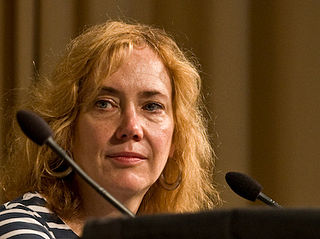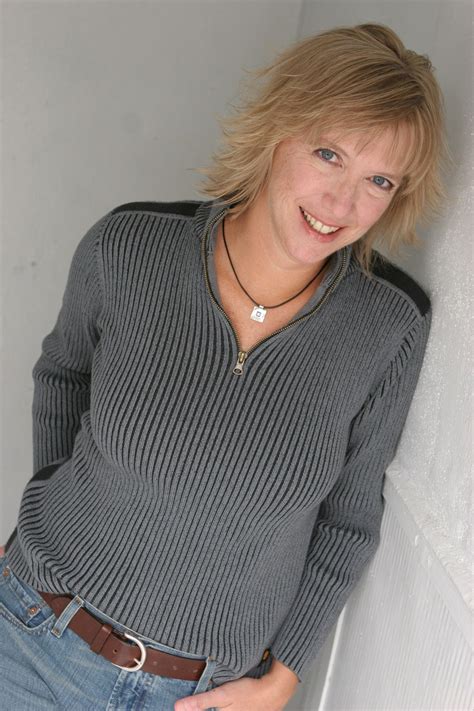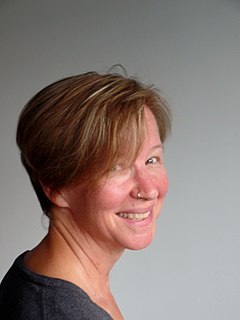Цитата Джеймса Роллинза
Я неправильно подписал много книг Роллинза или Клеменса. Мои читатели быстро осознают. Книготорговцы часто рекламируют меня под обоими именами, и я действительно подаю оба имени при подписании. Как правило, у читателя фэнтези нет проблем с жанром саспенса. Типичному читателю саспенса сложнее пойти в другом направлении.
Связанные цитаты
Я читал слишком много криминальных романов, где жертва была просто именем: тело номер один, мертвая женщина номер 12. Я понимал страх и хотел создать персонажей, которые заставят читателей сказать: «Пожалуйста, не делайте больно этому парню». .' Это ключ к саспенсу. Легко вызвать отвращение у читателя. Гораздо труднее заставить их заботиться.
Я люблю встречаться с читателями лицом к лицу на читательских мероприятиях, где мы можем сесть и поговорить. Слишком часто на регулярных автограф-сессиях я встречаю читателей, которые ехали шесть или восемь часов, чтобы увидеть меня, и я не могу провести с ними больше нескольких коротких минут, болтая с ними, пока подписываю книги.
В моих двух книгах, в том числе в книге о саентологии Going Clear, я подумал, что было бы уместно в конце книги помочь читателю сформулировать вещи. Потому что мы прошлись по истории, и у читателя, вероятно, возникли противоречивые чувства. Читатель может со мной не согласиться, но я не пытаюсь повлиять на читательское суждение. Я знаю, что каждый, кто берет в руки эту книгу, уже имеет определенное мнение. Но моя цель — немного открыть разум читателя для альтернативных нарративов.
Различия в том, что делает книгу тем или иным жанром, иногда могут быть немного запутанными, но, как правило, это вопрос прогнозирования того, кто будет аудиторией, а это суждение, основанное на предмете. «Мейнстрим» — самый чистый ярлык для книги, которая привлекает читателей обоих полов и самых разных возрастов.
Я несу полную ответственность перед читателем. Читатель должен доверять мне и никогда не чувствовать себя преданным. Между писателями и читателями существуют двойные стандарты. Читатели могут изменять писателям в любое время, когда захотят, но писатели никогда не должны изменять читателям. И это уместно, потому что автору платят, а читателю нет.
Это подчеркивало идею о том, что когда мы читаем или пишем книгу, вы участвуете в акте совместного творчества. Читатель и писатель оба пытаются одеться и представить себя с лучшей стороны, а потом наступает тот момент, когда внезапно, как читатель, ты уже не совсем ты, и точно так же, как писатель, ты на самом деле не ты. .
Проще говоря, метаписьмо — это письмо, которое самосознательно, саморефлексивно и осознает себя искусственным. Писатель знает, что она пишет, и она знает, что есть читатель, что восходит к часто используемому обращению Монтеня «дорогой читатель» или к его краткому предисловию к «Очерку»: «Читателю». Это можно сделать множеством способов.
Пишите то, что хотите прочитать. Так много людей думают, что им нужно написать книгу определенного типа или имитировать успешный стиль, чтобы ее опубликовали. Я знал людей, которые чувствовали, что должны строить свои книги по образцу существующих блокбастеров или писать в жанре, который должен быть «горячим прямо сейчас», чтобы заинтересовать агентов и издателей. Но если вы пишете в жанре, который вам не нравится, или подражаете книге, которую не уважаете, это проявится. Вы — ваш первый и самый важный читатель, так что пишите книгу, которую читатель действительно захочет прочитать.
Каждый читатель, когда он читает, на самом деле является читателем самого себя. Произведение писателя — лишь своего рода оптический инструмент, который он дает читателю, чтобы он мог различить то, что он, возможно, никогда не увидел бы в себе без этой книги. Признание читателем в себе того, что говорится в книге, является доказательством ее истинности.
































